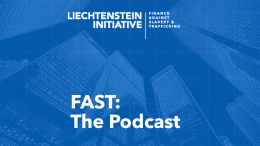After launching at the UN General Assembly in 2018, Delta 8.7 — the Alliance 8.7 Knowledge Platform based at United Nations University Centre for Policy Research — has achieved universal coverage of its data dashboards, which include data visualizations and policy-relevant information for every UN Member State on Target 8.7 of the Sustainable Development Goals relating to modern slavery, human trafficking, forced labour and child labour.
Delta 8.7’s data dashboards visualize trends to allow policymakers to assess the effectiveness of policy interventions and compare data across States. Each country’s dashboard contains country-level data visualizations and details on government efforts to address these crimes. The data was sourced from multilateral organizations as well as through a Notice and Comment process with national statistics offices and other government agencies. In addition to these country-level dashboards, Delta 8.7 also launched the global dashboard, which provides a comparative overview of Target 8.7 data and information both globally and regionally. The global dashboard presents government efforts, social protection coverage and prevalence data in a comparative perspective.
In addition, three domain-specific Policy Guides have been released after a year-long consultation with global experts. These Policy Guides translate research findings into “snapshots” of the evidence base on effective measures to combat modern slavery and human trafficking, including for those thinking about multilateral policy frameworks.
-
Crisis Policy Guide – addresses policies broadly related to crisis-specific contexts, including conflict, humanitarian crisis response and forced migration.
-
Justice Policy Guide – addresses policies broadly related to justice, including criminal and civil justice, survivor engagement and support, and the role of the health sector.
-
Markets Policy Guide – addresses policies in the areas of economic, trade and financial regulation, including supply chain monitoring and development strategy.
These two initiatives are part of Delta 8.7’s objective to bring together and translate the most useful data and research to promote effective, evidence-based policymaking to address Target 8.7. They are crucial tools that will assist States in understanding “what works” to eradicate modern slavery, human trafficking, forced labour and child labour; a key mandate of the project.
Alice Eckstein, Modern Slavery Programme Manager at United Nations University Centre for Policy Research, said: “Delta 8.7 is delighted to have achieved universal coverage of its data dashboards. Both the dashboards and the Policy Guides are dynamic components of Delta 8.7 that will continue to expand and deepen as we collaborate with partners around the world to identify the most effective measures to achieve Target 8.7. It is Delta 8.7’s mission to be at the forefront of these endeavours, promoting the active engagement of policymakers with the evidence base. We especially thank the many policymakers and researchers who worked with us to achieve these outcomes.”
Dr David Passarelli, Executive Director of United Nations University Centre for Policy Research, added: “This is an important milestone for Delta 8.7 and showcases the project’s unique and pioneering approach to ensure that best available data and research reaches policymakers in ways that are most useful to them. Through significant engagement with policy actors and building up networks of global experts, Delta 8.7 ensures that effective measures can be surfaced, understood and acted upon in order to turn the tide on modern slavery.”
Delta 8.7 is a contribution by United Nations University Centre for Policy Research to Alliance 8.7. Phase I of Delta 8.7 was developed with the support of the UK Home Office Modern Slavery Innovation Fund, the U.S. Department of Labor and the International Labour Organization. The current Phase is supported by the UK Home Office Modern Slavery Innovation Fund.


